The half-finished, two-storey roundabout at the center of Lunsar is not much to look at – a circular concrete shell that one day, maybe, will be finished and become a clock tower similar to those in nearby Makeni and Port Loko.
Until then, however, once a year it becomes the prime viewing platform for the Lunsar Science In Sport TourSierra Leone’s largest bicycle race.
Under canopies at the foot of the roundabout, sit invited dignitaries – civic leaders, mining company executives and members of the government – but the hundreds of children who gather to watch the start and finish of the race each day know where to get the best views . Banners bearing sponsors’ branding are shoved aside, and faces peer through the gaps in the bare breeze block walls of the first floor.
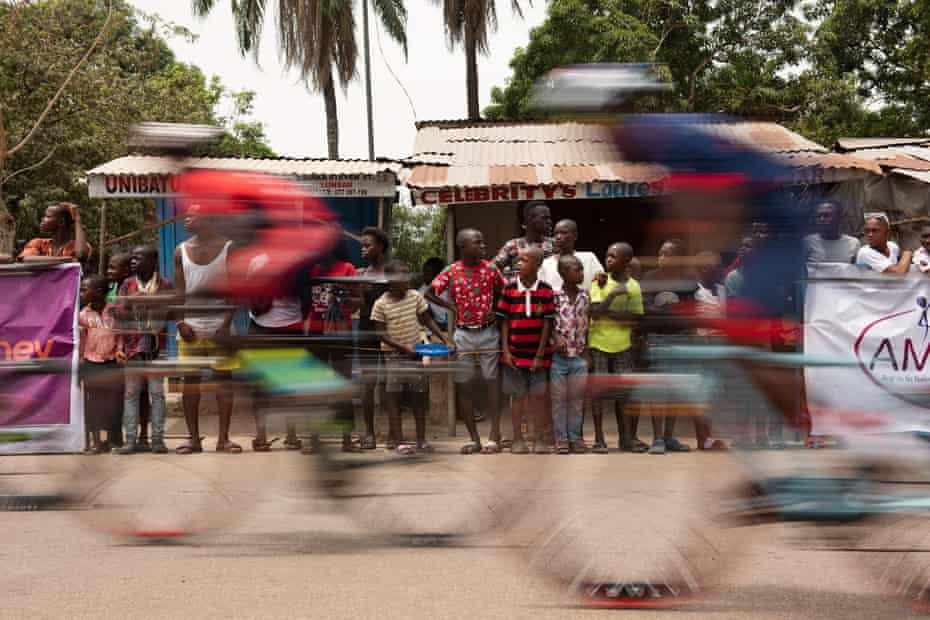
When, on the second day of the men’s race, local hero Ibrahim S Jalloh enters the town alone to cross the line 26 seconds ahead of the chasing pack and seize the lead of the race, it is the kids who are the first to spot him.
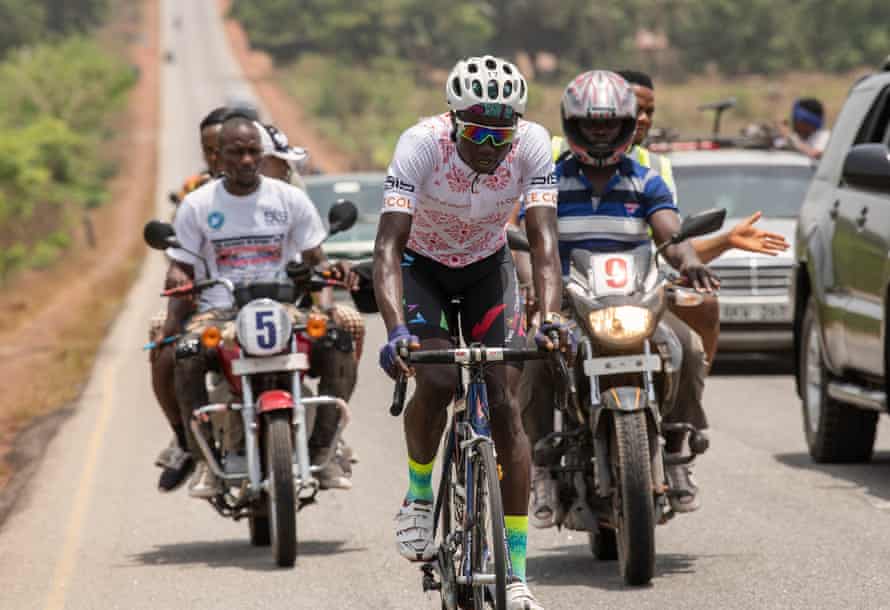
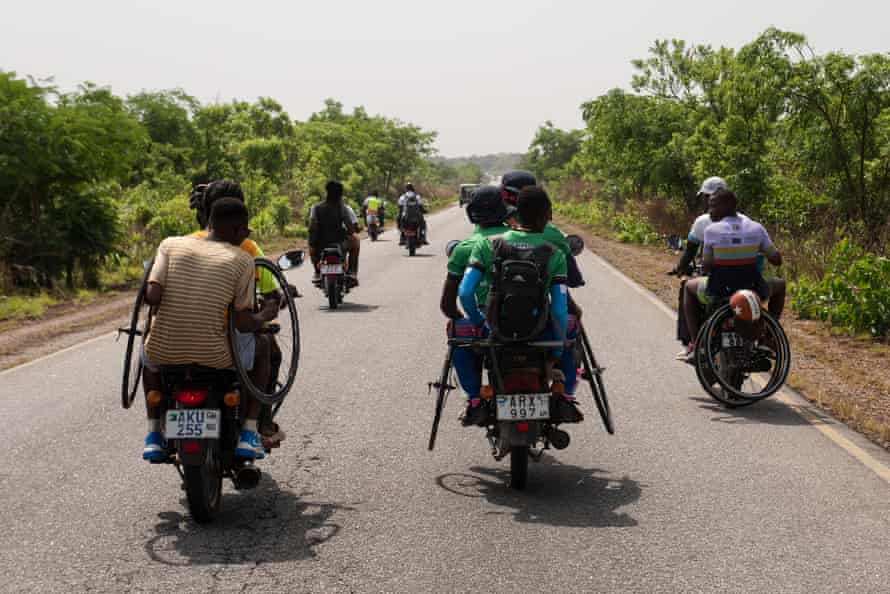
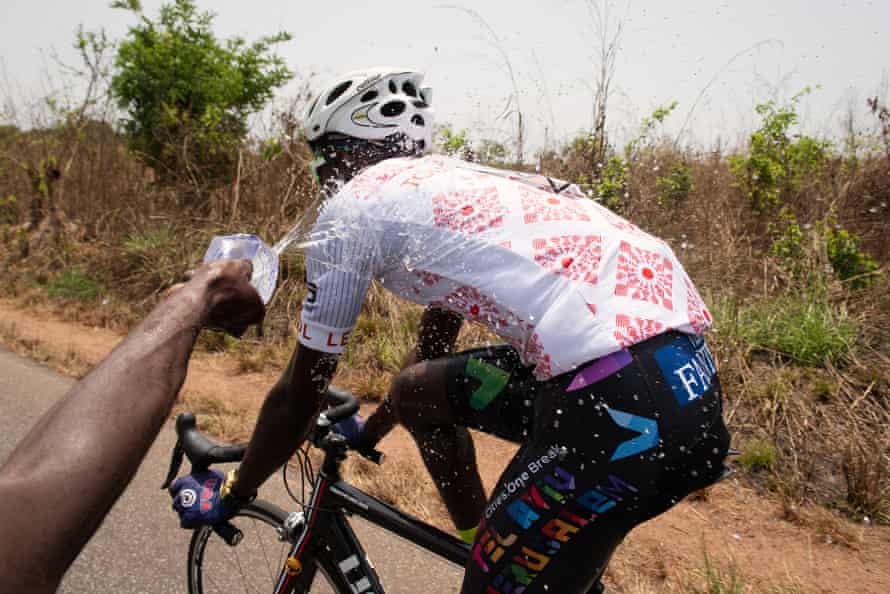
The roar begins at the roundabout but soon spreads. The crowds lining the finishing straight begin to jump and shout. The police try in vain to hold back the surge of excited bodies. By the time Jalloh crosses the line, arms held aloft like any competitive cyclist around the world has dreamed of doing, the din has reached a fever pitch. The local boy, a bike mechanic and one-time member of the national cycling team, is mobbed, jostled and congratulated. Thousands of people have gathered to watch him win this stage, and will return the next day to see him seal the overall race victory.
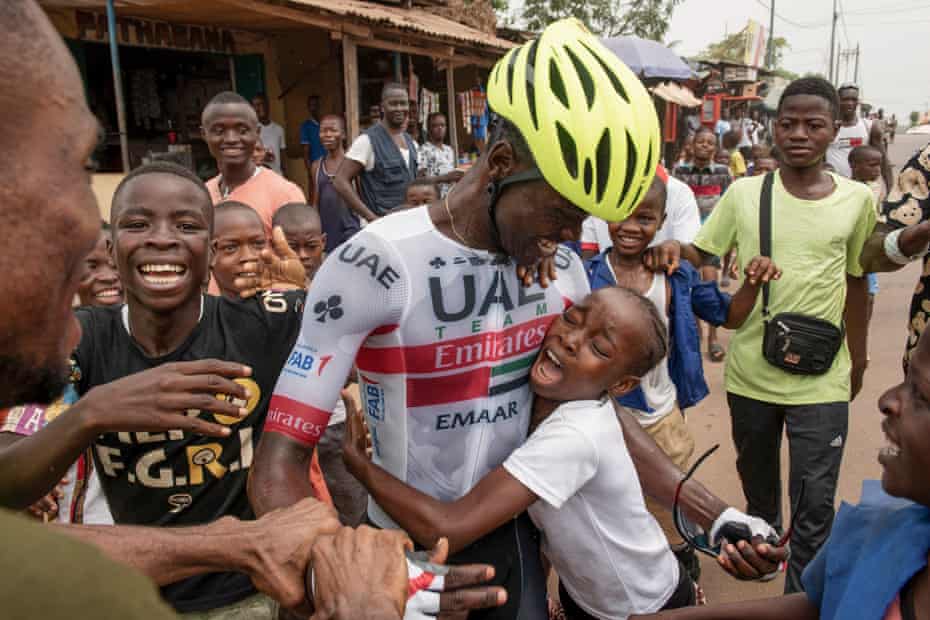
It wasn’t always like this. The tour is the creation of local bike shop owner Abdul Karim Kamara, who set up the Lunsar Cycling Team, and the race, in 2013. There was no blueprint for him to follow, and certainly no cycling culture in his adopted home town in the north-west of Sierra Leone. But from humble beginnings, it has grown into one of the best-known races in West Africa.
“The mission statement for the Tour de Lunsar is to give Sierra Leoneans that opportunity to race, and also how I can bring nearby African countries who don’t have the opportunity to compete in their country to come and race in Sierra Leone. I know we have a lot of talent here and in the whole of Africa, but the platform is not here, like in Europe. I hope the Tour de Lunsar will open doors for young athletes in Sierra Leone.”
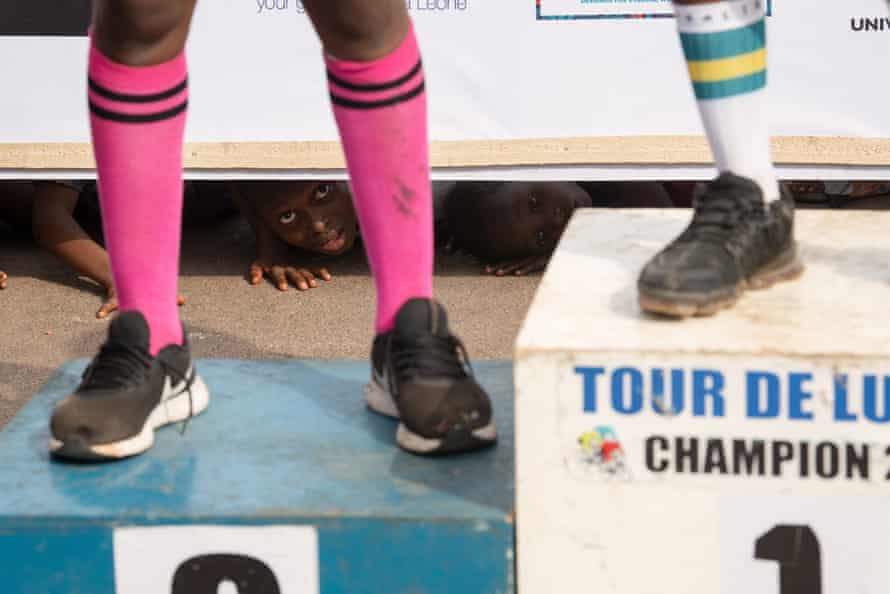
In 2013, about 10 riders competed on bikes donated by the US, shipped to west Africa in containers by the NGO, Village Bicycle Project. With no viable way of importing and selling new bikes in the country, most of the machines used by the 100 or so participants in the 2022 race came from similar sources. The exception is the Lunsar Cycling Team’s fleet of eight carbon fiber frames, bought secondhand from USA Cycling.
Generally, though, the standard of equipment is poor. Each of the country’s 10 or so clubs has one or two “good” bikes, given to their best riders. Other riders will compete on the best machines they can cobble together. The bicycle may be a simple thing in essence, but every one of its components is in desperately short supply in Sierra Leone. On the first day of the men’s race, the road out of Freetown is littered with riders and their broken bikes.
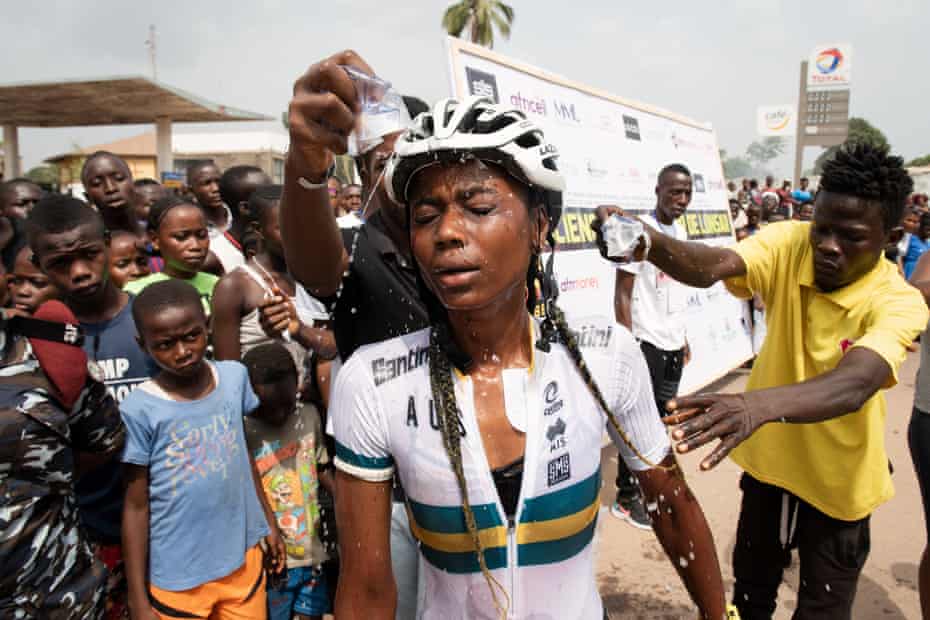
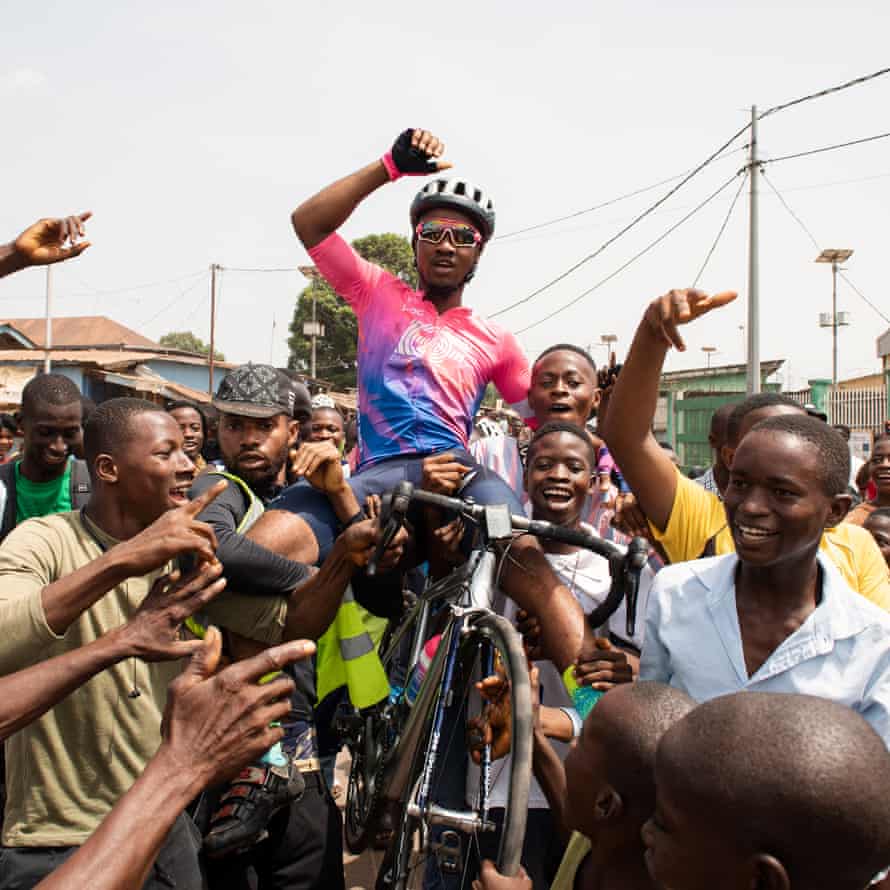
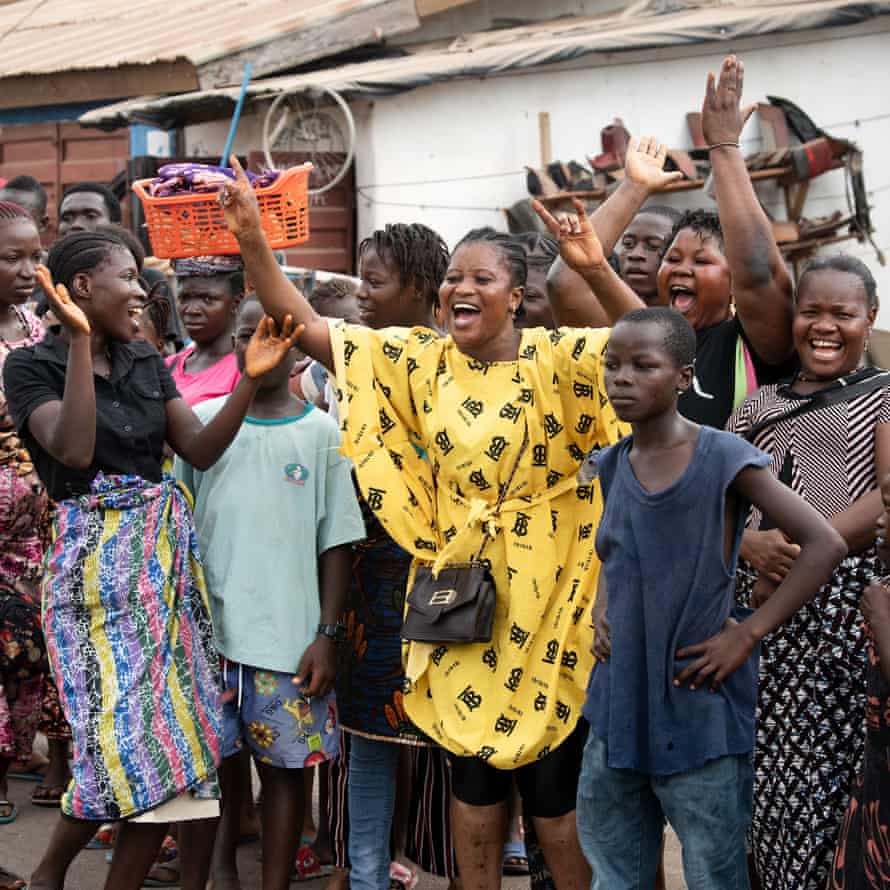
-
Top: Elizabeth Mansaray, who finished second in the women’s race, cools down after more than three hours riding. Bottom: Moses Kamara is carried aloft by fans after his B team victory, and fans cheer riders in the women’s race
Cycling is still on the fringes of the Sierra Leone sporting landscape – but awareness is growing, with the presence of government minister, Alpha Kanu, at this year’s race, and the number of cycling clubs being founded or revitalized by the chance to compete in the event.
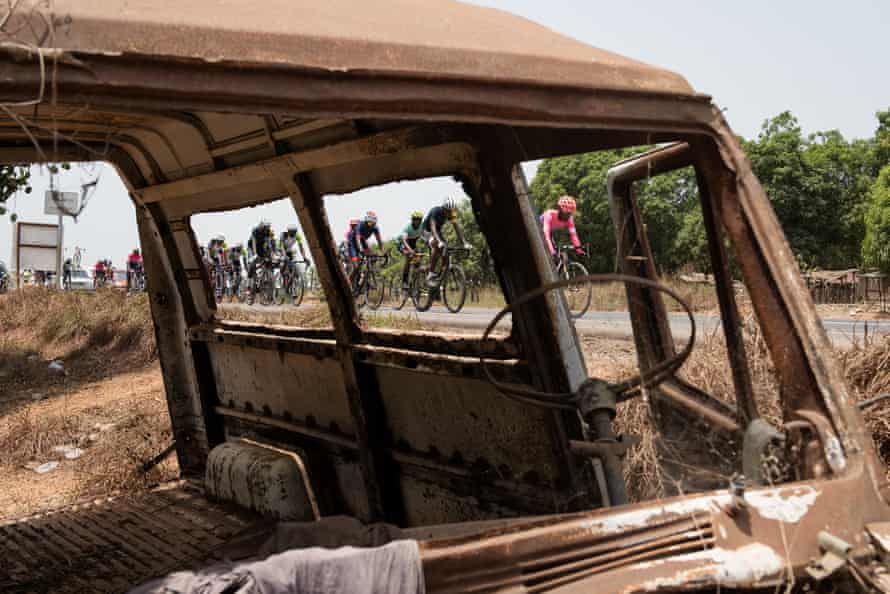
And the race is a boon for local people. Several rooms at the Bai-Suba Resort hotel were occupied by foreign spectators, expat participants and members of the race organizing team. “I am delighted to see this event here, the people from the town are so happy. It will put Lunsar on the map,” says hotel manager Bockarie Dauda.
At 334km, split over three stages – Freetown to Lunsar, Lunsar to Makeni and back, Lunsar to Port Loko and back – the race is not very long by international standards. The route is almost entirely flat, limited to the small number of asphalted roads that connect the country’s main settlements, but the heat can make the smallest inclines seem arduous.
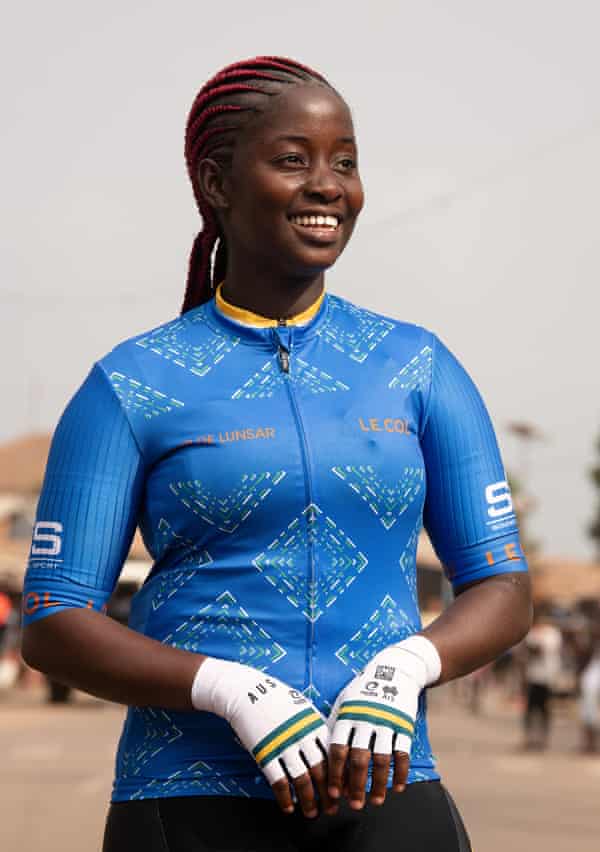
The roads are not closed to other traffic during the race, and long tailbacks can occur with riders tracing a path through buses, mining trucks and taxis as they seek to rejoin the peloton after a mechanical or comfort break.
There is a consensus among Sierra Leone’s young bike riders that cycling is their ticket to see the world. If they can become professionals, they’ll visit the bike racing heartlands of Europe – France, Belgium, Italy – and earn a fortune in the process.
But getting the opportunity to travel is not easy. In early 2022, Tour de Lunsar women’s champion, Fatima Deborah Conteh, received a dream contract offer from a European development team. But she was denied a visa, a harsh reminder of the obstacles faced by West African athletes. Should Conteh find her way to Europe and start racing, she will become Sierra Leone’s first professional cyclist. For now she remains in limbo, unable to improve at home given the limited number of events and quality of the competition, but prevented from taking the next step by a visa system stacked heavily against West Africans.
However, not everyone sees Sierra Leone as a place to escape from. Race organizer Kamara has an invitation for cyclists and fans of the sport around the world.
“There’s a negative perception of our country, attached to the legacy of Ebola and civil war, but that is not the true Sierra Leone,” he says. “This is a beautiful, peaceful country. There are great roads to ride, incredible scenery and passionate cyclists and fans. You can have an experience here that will stay with you for ever and you’ll be warmly welcomed wherever you go.”
Sign up for a different view with our Global Dispatch newsletter – a roundup of our top stories from around the world, recommended reads, and thoughts from our team on key development and human rights issues, delivered to your inbox every two weeks:
Sign up for Global Dispatch – please check your spam folder for the confirmation email
www.theguardian.com
George is Digismak’s reported cum editor with 13 years of experience in Journalism